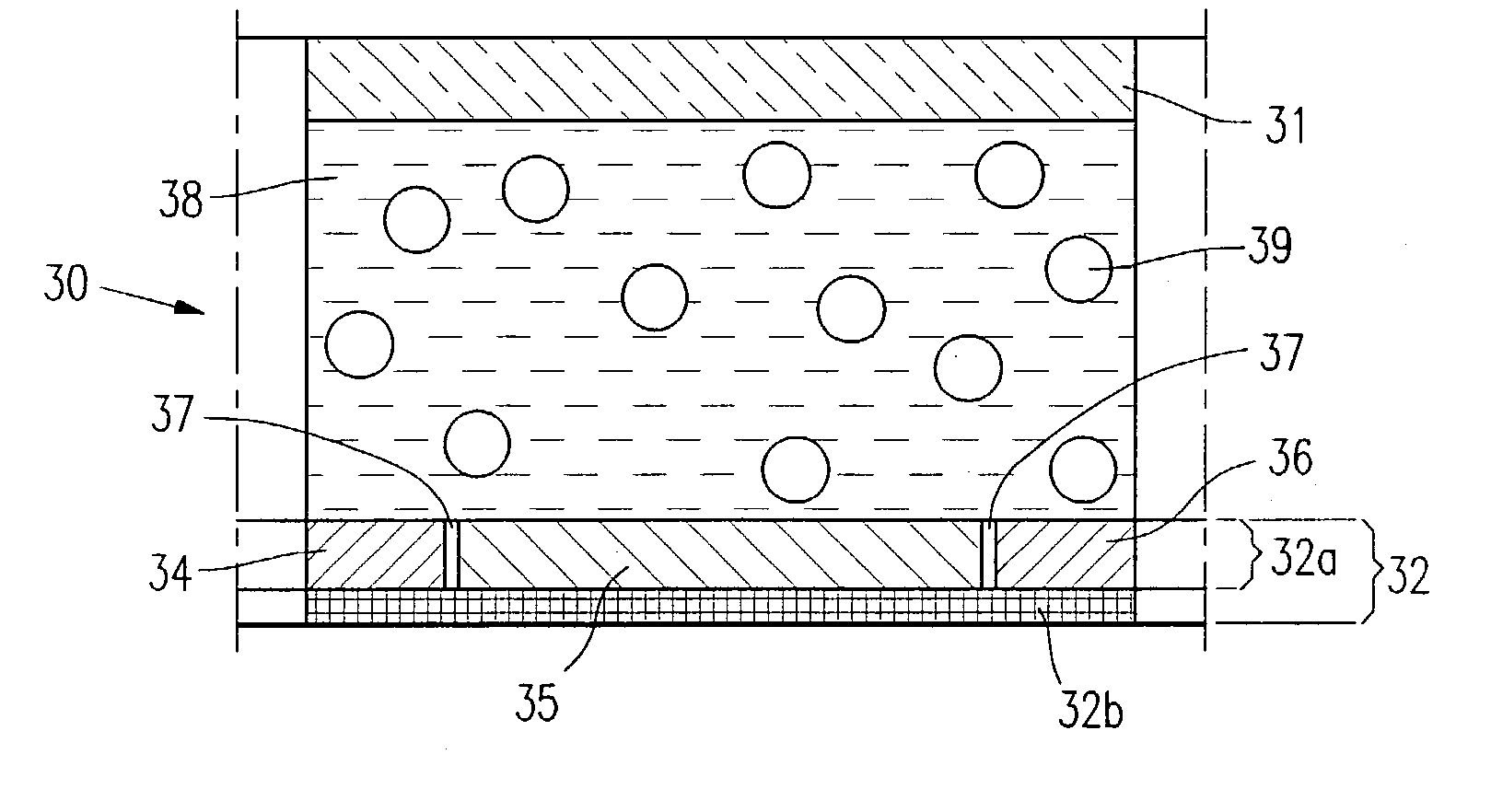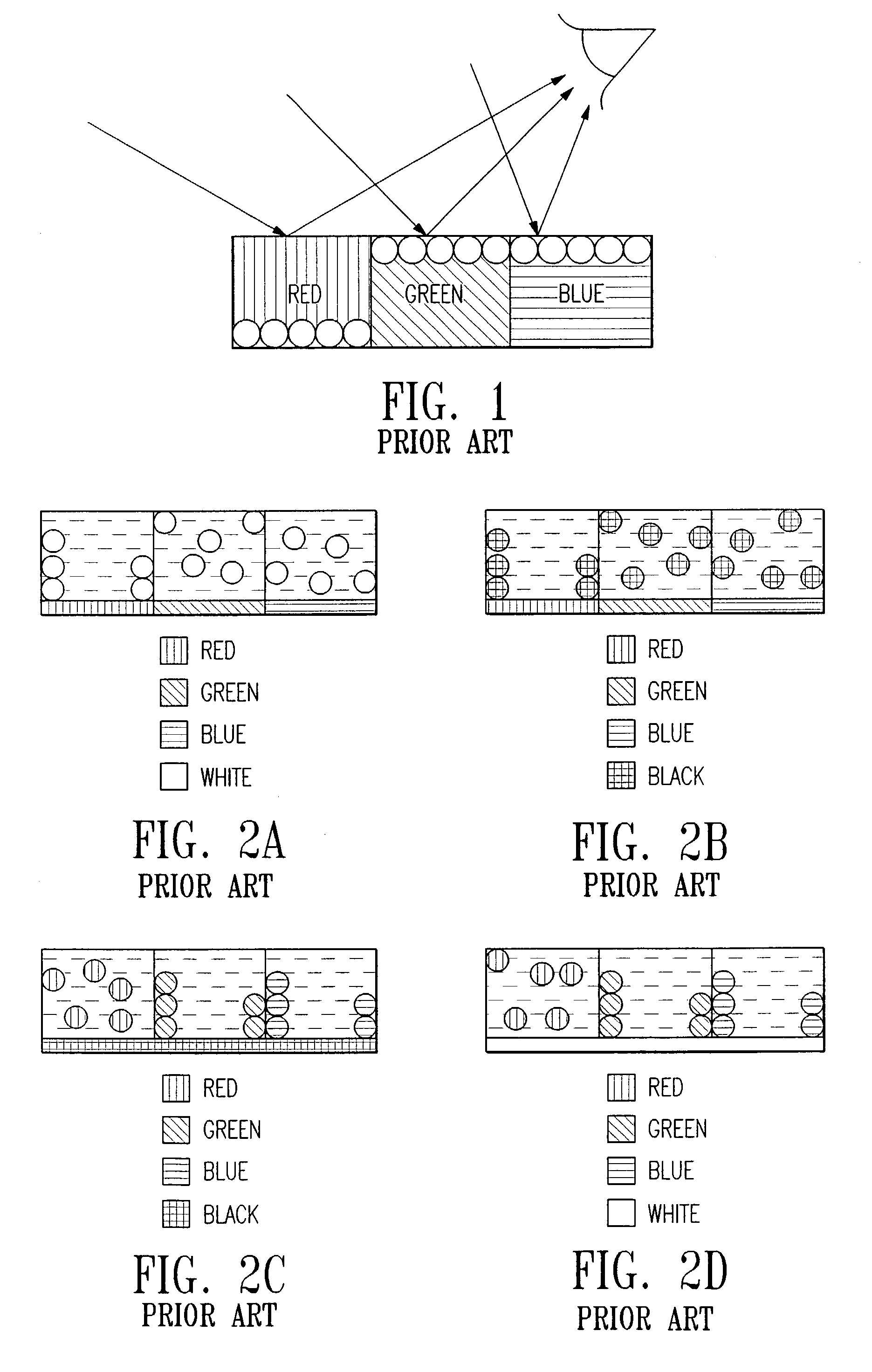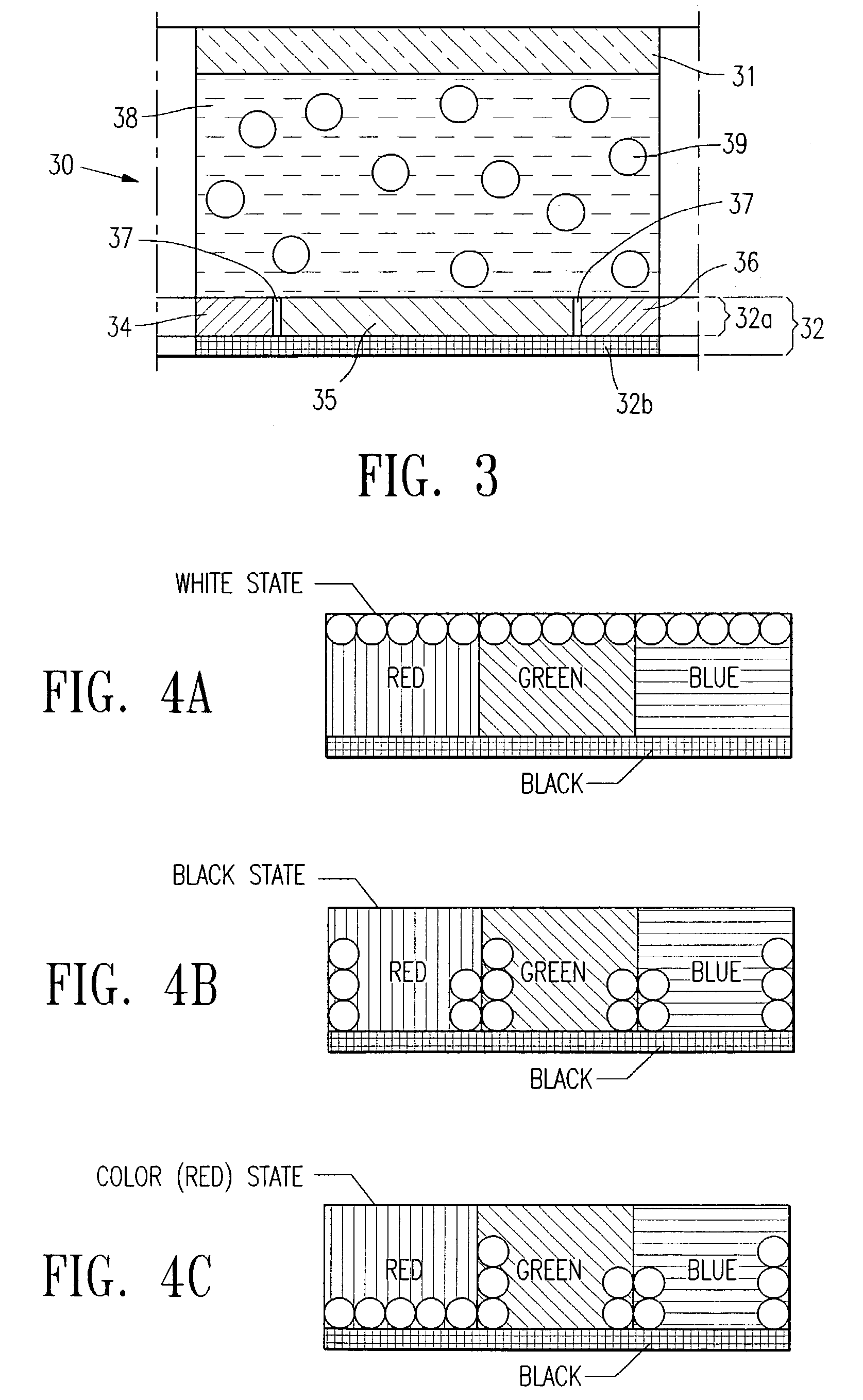Electrophoretic display with dual mode switching
a dual-mode switching, electrophoretic display technology, applied in the direction of electric digital data processing, instruments, computing, etc., can solve the problems of poor scratch resistance, difficult problems encountered in partition formation, difficult to form partitions, etc., to achieve high color saturation, low cost, and high contrast
- Summary
- Abstract
- Description
- Claims
- Application Information
AI Technical Summary
Benefits of technology
Problems solved by technology
Method used
Image
Examples
Embodiment Construction
[0032]Unless defined otherwise in this specification, all technical terms are used herein according to their conventional definitions as they are commonly used and understood by those of ordinary skill in the art. The terms “well-defined”, “aspect ratio” and “imagewise exposure” are as defined in the co-pending applications identified above.
[0033]It is understood that the scope of the present invention encompasses the conventional EPDs and EPDs manufactured from microcups, microchannels, microcapsules and the like.
[0034]The term “conventional EPD” refers to any electrophoretic cells known in the art. The electrophoretic cells may be of any shapes and sizes, and the displays include, for example, the partition type displays.
[0035]The term “microchannel” refers to the type of electrophoretic cells disclosed in U.S. Pat. No. 3,612,758.
[0036]The term “microcup” refers to the cup-like indentations, which may be created by methods such as microembossing or imagewise exposure followed by a...
PUM
 Login to View More
Login to View More Abstract
Description
Claims
Application Information
 Login to View More
Login to View More - R&D
- Intellectual Property
- Life Sciences
- Materials
- Tech Scout
- Unparalleled Data Quality
- Higher Quality Content
- 60% Fewer Hallucinations
Browse by: Latest US Patents, China's latest patents, Technical Efficacy Thesaurus, Application Domain, Technology Topic, Popular Technical Reports.
© 2025 PatSnap. All rights reserved.Legal|Privacy policy|Modern Slavery Act Transparency Statement|Sitemap|About US| Contact US: help@patsnap.com



